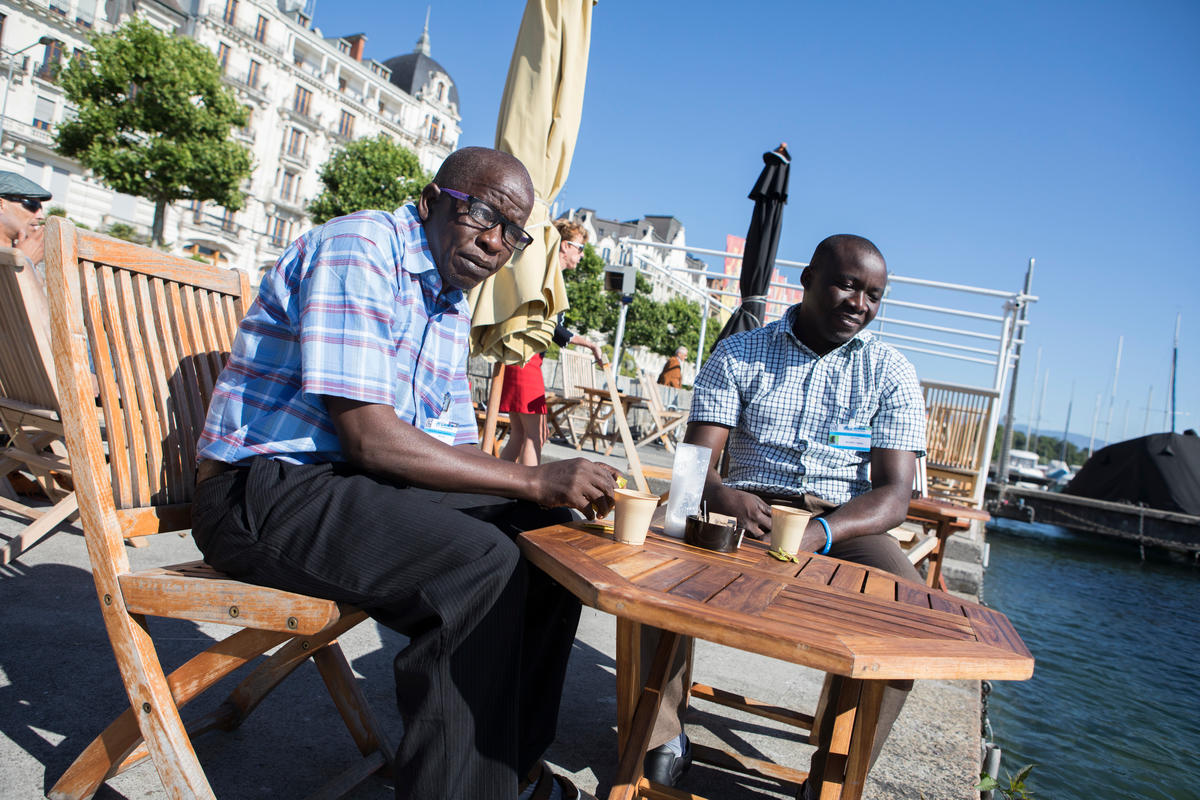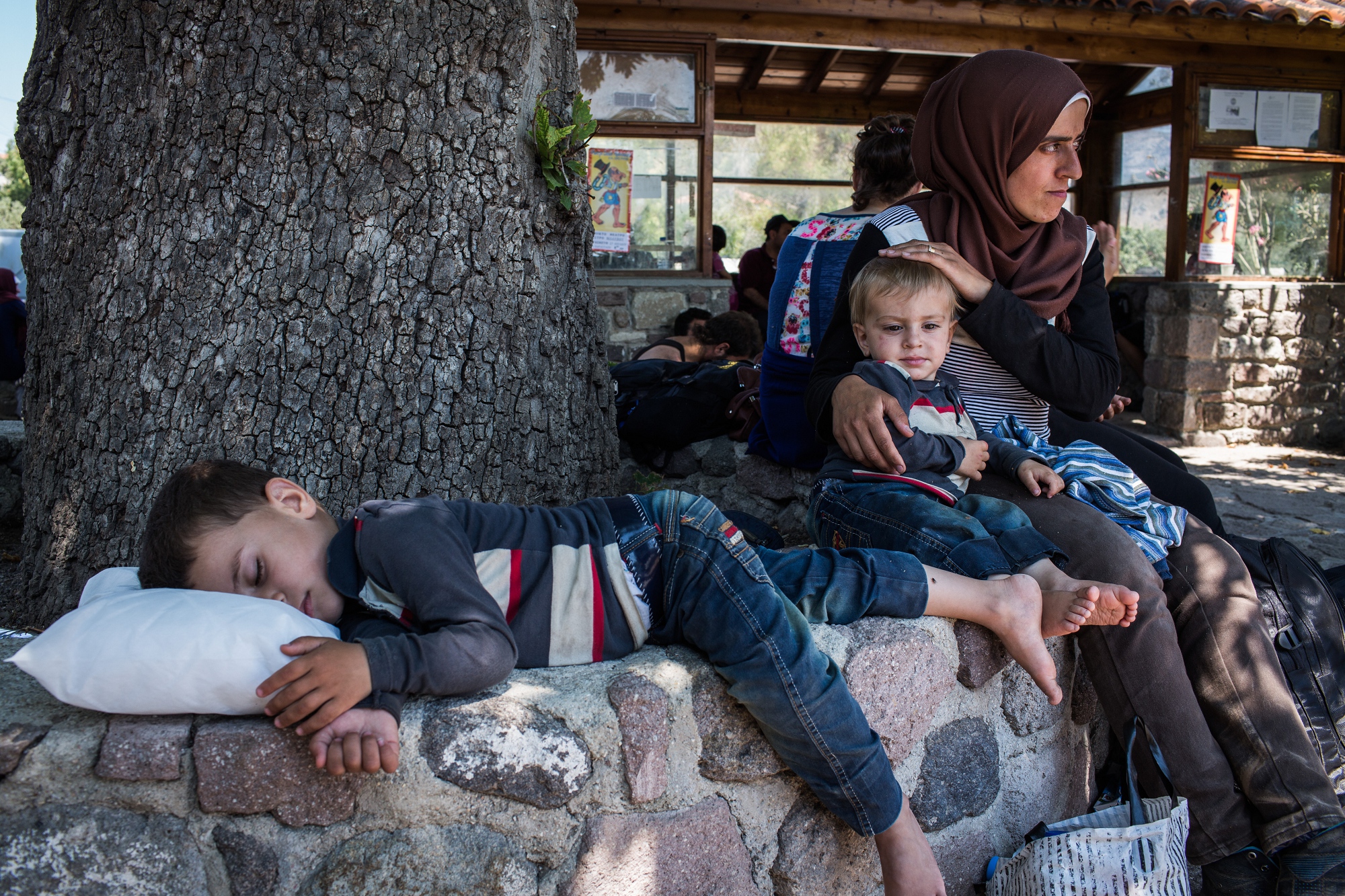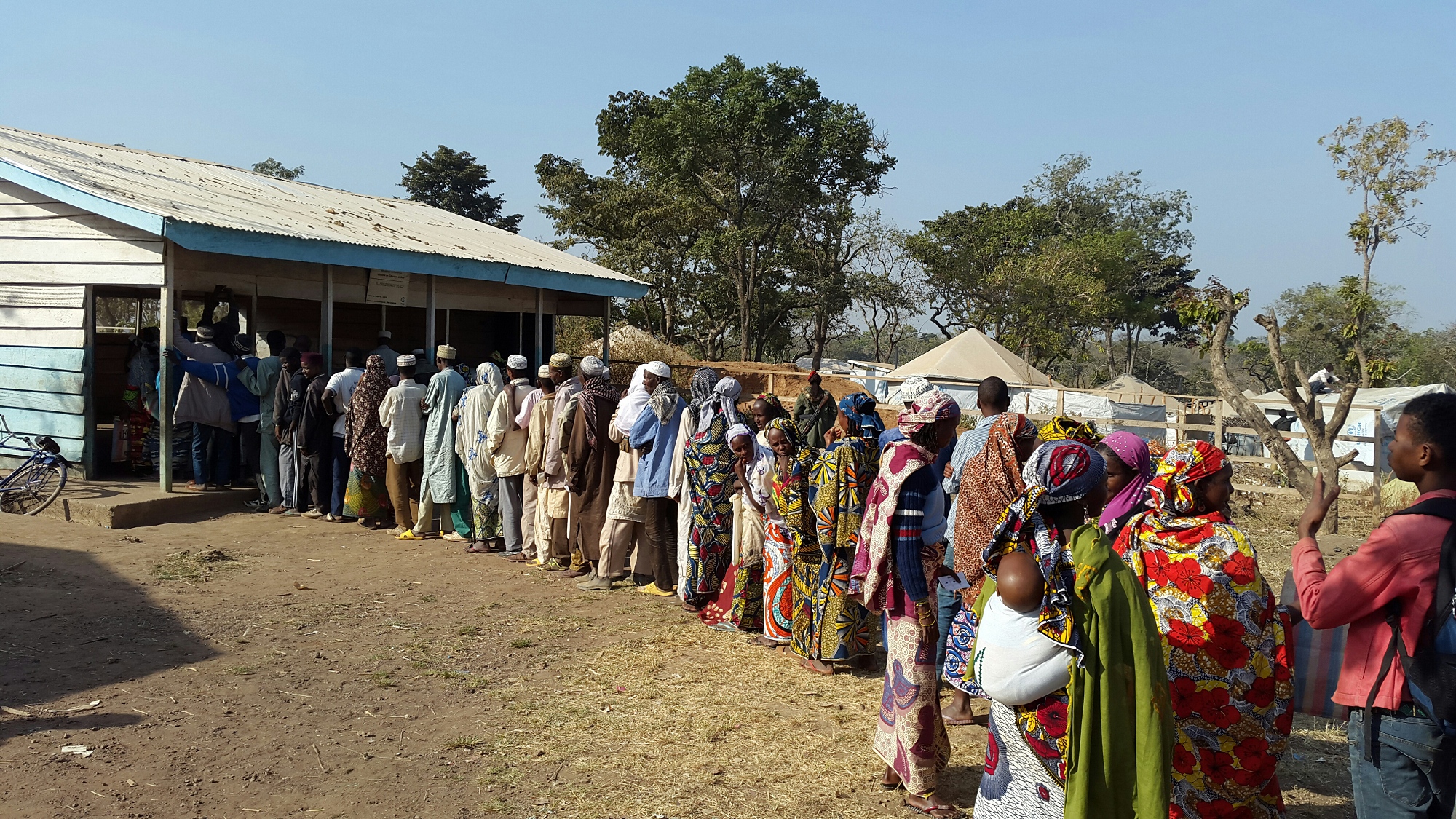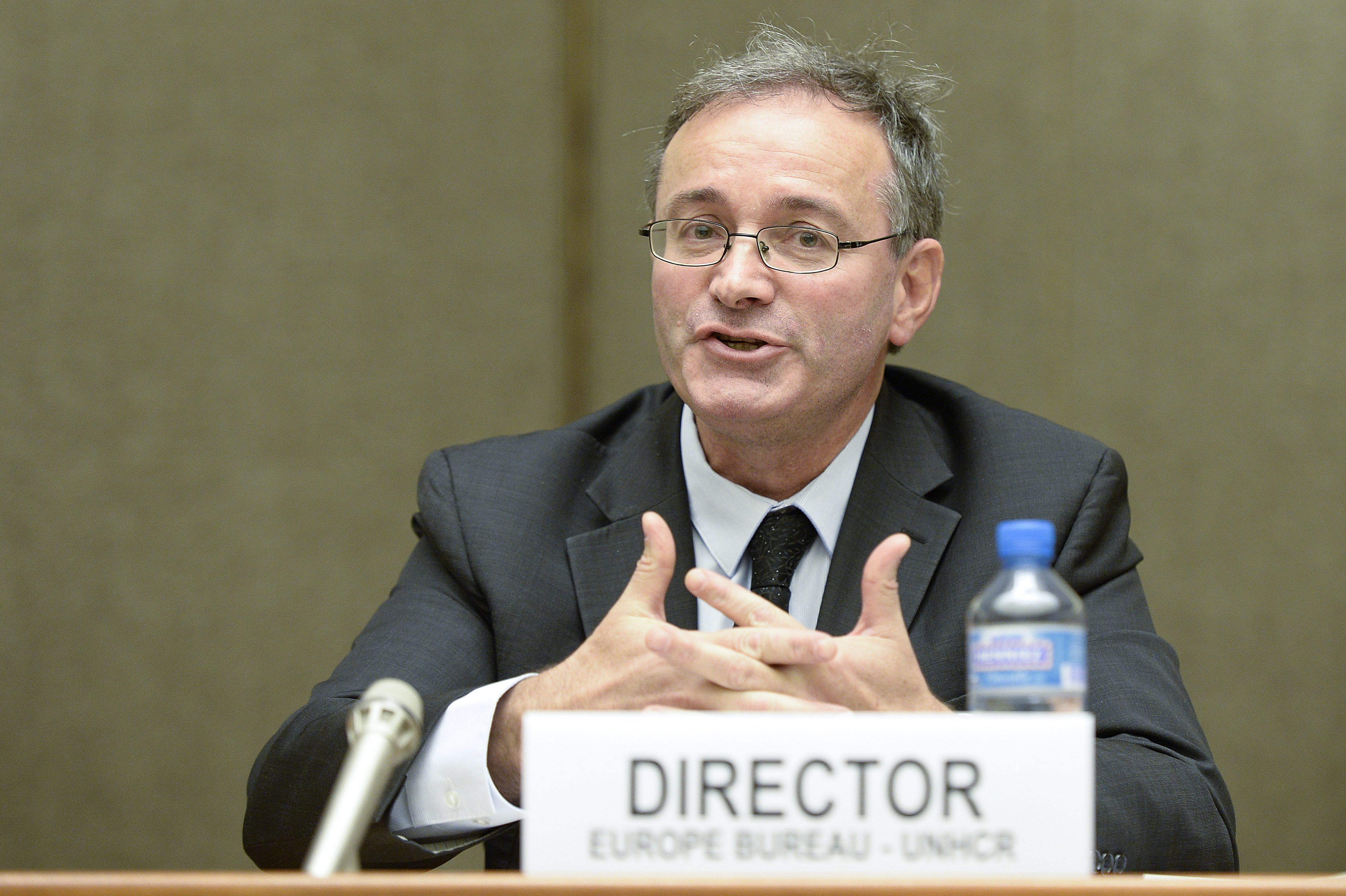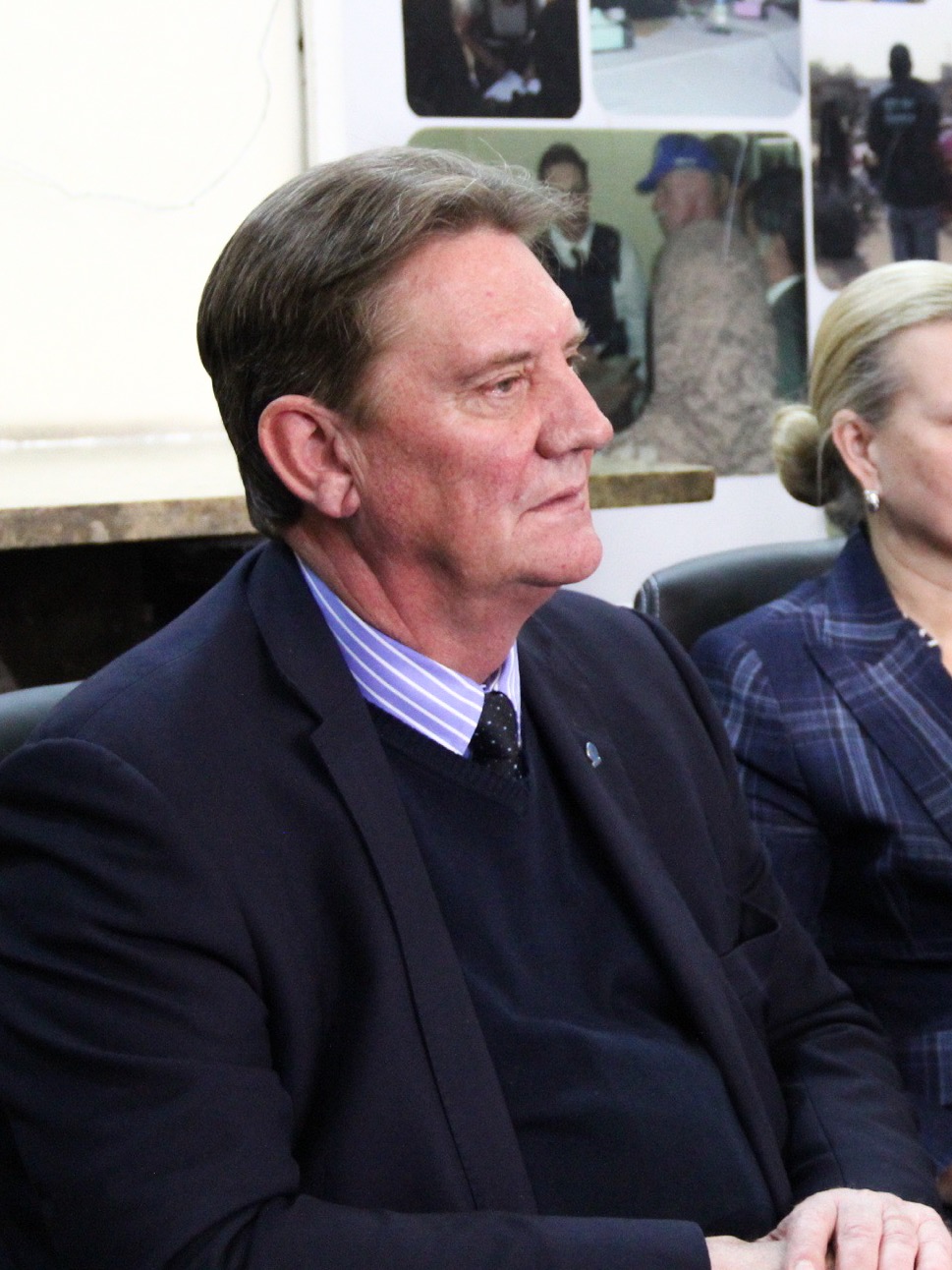Q&A: A Syrian doctor on the run finds his niche
Q&A: A Syrian doctor on the run finds his niche
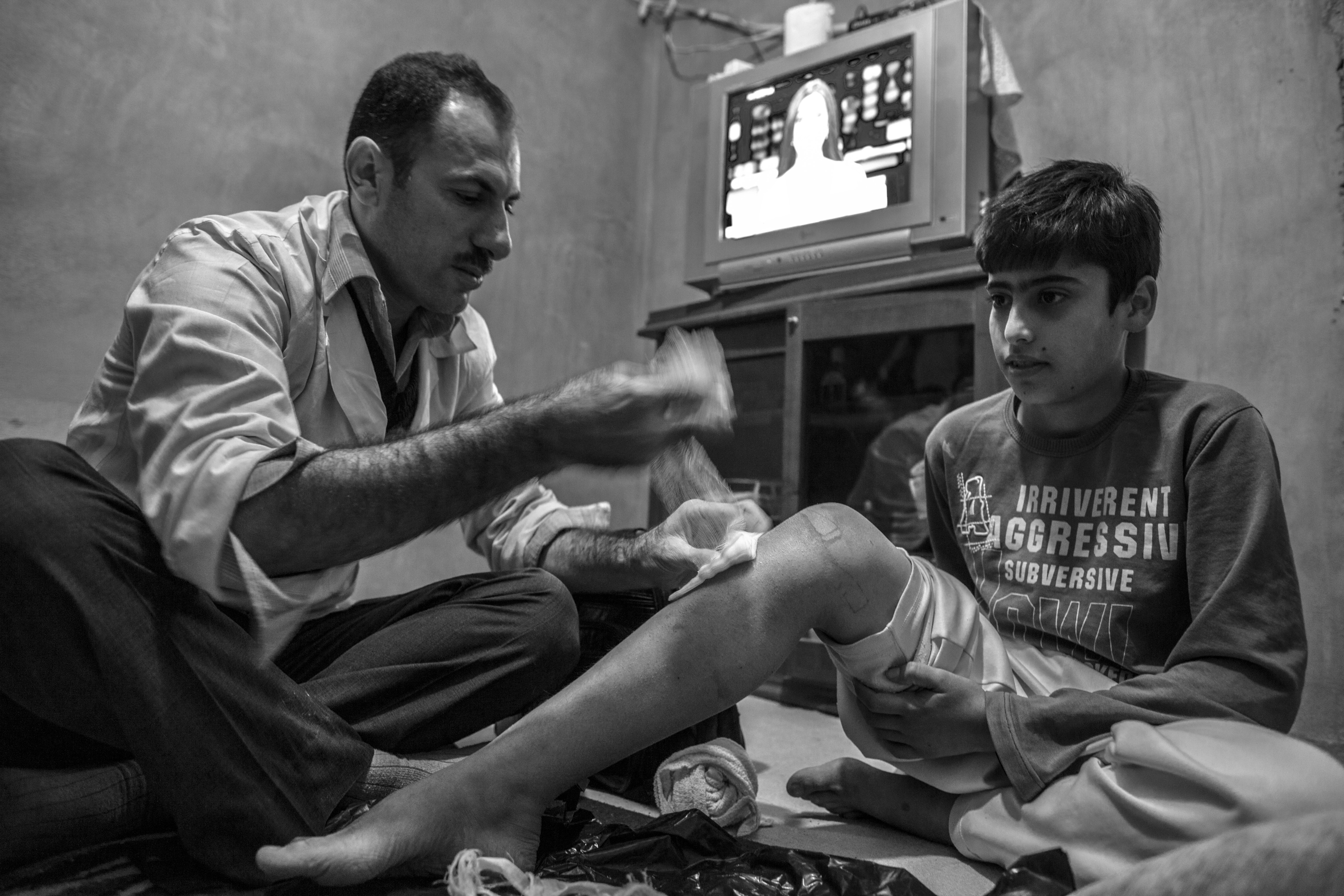
DOMIZ REFUGEE CAMP, Iraq, March 5 (UNHCR) - Hassan is a husband, a father, a doctor and a refugee. He fled the conflict in Syria last May, accompanied by his wife and two children - the youngest just three weeks old. Doctor Hassan, who asked that only his first name be used, now works at Domiz Refugee Camp in the Kurdistan region of Iraq, treating ill and injured Syrians at a clinic run by one of UNHCR's partners, Médecins Sans Frontières (MSF). Between shifts, he recently spoke with photographer Brian Sokol and UNHCR Public Information Officer Mohamed Abu Asaker. Excerpts from the interview:
What is the greatest health challenge facing refugees during the winter months?
Sore throats and respiratory problems are a major concern, as well as joint pain and back problems. People are very exposed to the cold weather because they're living in tents without insulation, rather than homes. And because of overcrowding, it's easy for diseases to spread from one person to another - and then one tent to another. Children are the most susceptible to the cold because they have weaker immune systems than adults.
What can be done to minimize these risks?
There is a need for winterized housing, rather than tents, or tents that are higher off the ground. It's also important to provide more kerosene to keep people warm in the camp. There is a lot of moisture inside the tents, which leads to bacteria. A heating system would dry the tents, kill bacteria and make it warmer and safer. There are a huge number of diarrhoea cases, particularly among children. I personally see at least three cases per day. We need more infrastructure in the camp, particularly in terms of drainage. That would improve the hygiene more than anything else.
Who comes into the clinic seeking medical attention?
New arrivals are the most frequent visitors because the change in diet and environment makes them susceptible to disease and leaves their immune system compromised. Also, because the access to health care is better here than in Syria now, I see people coming for medical treatment. Many of those with chronic diseases, cancer and other conditions, haven't been able to get treated in Syria.
Has your experience as a refugee made you a better doctor in this context?
Yes, of course. In 2006, I treated Iraqi refugees in Syria. I worked on the Iraqi-Syria border for two-and-a-half months. I never imagined that I would one day be a refugee myself. It's like a nightmare. As a refugee, I feel more comfortable among the people than some might. I understand the situation and the agony they had to go through to be here. When I came to the camp, I began treating people directly - even before I got a job with MSF.
When did you decide it was time to leave Syria?
I took the decision in December 2011, but we couldn't leave yet because my wife was heavily pregnant. Twenty days after she gave birth we left the country . . . We stayed in a village close to the Syrian-Iraqi border for two nights before finding a smuggler. We paid US$1,100 to cross the border. I left the country for the sake of my family. I don't want my children to grow up as orphans.
You entered Iraq with your wife, child and newborn baby. What was it like for her to bring a toddler and a 20-day-old infant across the border?
It wasn't easy for her. In fact it was terrifying, and very, very difficult. But we couldn't allow them to stay in Syria; they had to leave. It was difficult back there. Armed men were shooting everywhere. But it's not my battle and I don't want to be part of it.
Tell us about the night that you left Syria.
It was the worst journey of my life. We took a car for about 300 kilometres. Then we stayed in a house close to the border with Iraq. It was very hot that day. We were hosted by a local family. The second night we slept in the car. On the third day we crossed the border. I gave sleeping pills to my children so they would not make any noise. But they didn't sleep; they woke up and they whispered and they were scared.
Less than three weeks earlier my wife had given birth by Caesarean section, so it was very difficult for her to make the long walk. She had to stop frequently. I was taking care of our belongings and our older child, and my wife carried our baby. I fell down at one point and my wife began to cry. The smugglers helped me back to my feet. It took us two-and-a-half hours from the house to the border on foot. We went at night, stumbling through the dark.
What did you do upon reaching Iraq?
There was a car waiting for us on the other side that took us to my friend's house, where we stayed for a few weeks. In spite of the exhaustion and difficulty of the journey, I felt very happy. I was immensely relieved that we arrived safe and sound with the whole family.
What is the best thing about being in Iraq?
That it's safe and secure. I can do whatever I want; I can go wherever I want. Most importantly, I'm not concerned for the safety of my children.
What do you miss the most about Syria?
I miss the mountains and my family and friends there. We had a great social life. My favourite memories are of the frequent barbecues we would have. Of laughing and eating together. I still can't believe what's happened. I hope that nobody else will have to go through the experience we've been through.
What is the most rewarding thing about your work at the clinic?
Patients are very happy and I get to see them smile. Sometimes after they are better they come to visit me and just say hello, which makes me happy and tells me I'm doing something worthwhile. It puts me in a good mood. Last week there was an old lady I treated who I saw in the camp. She insisted on hosting me for lunch. You feel very close to the people you help.
















